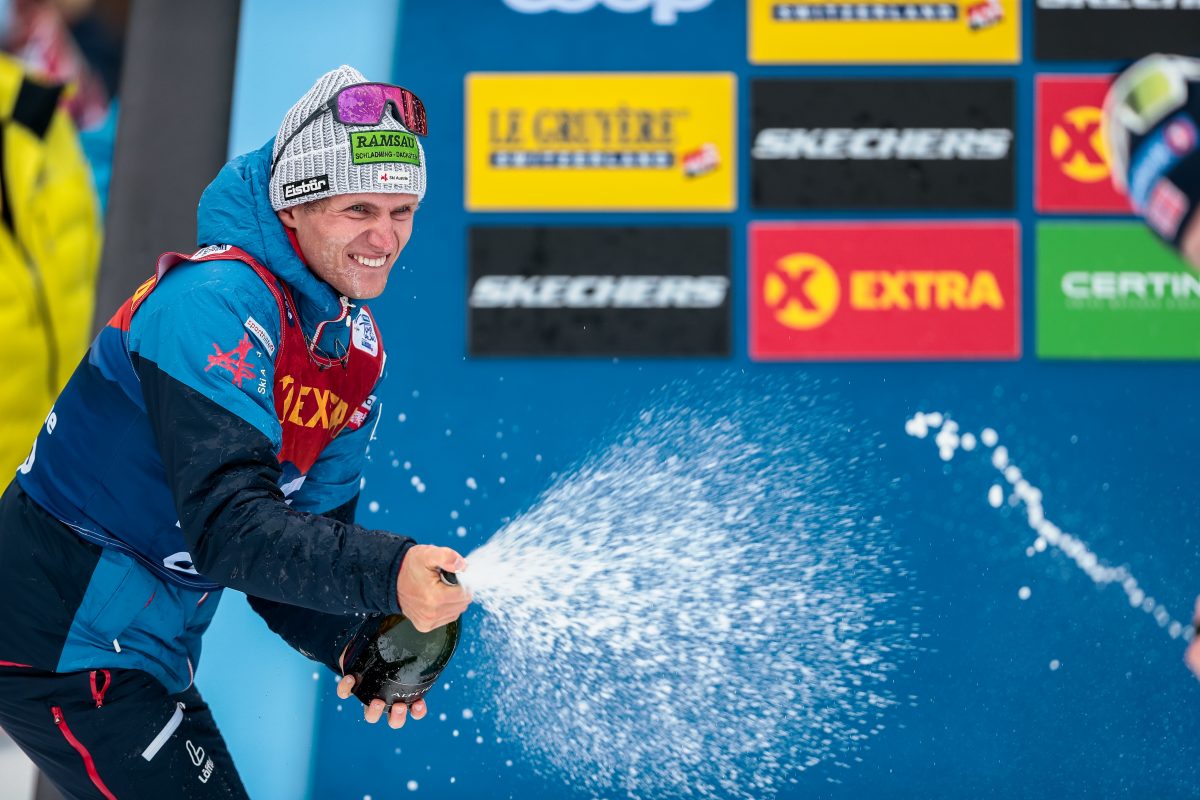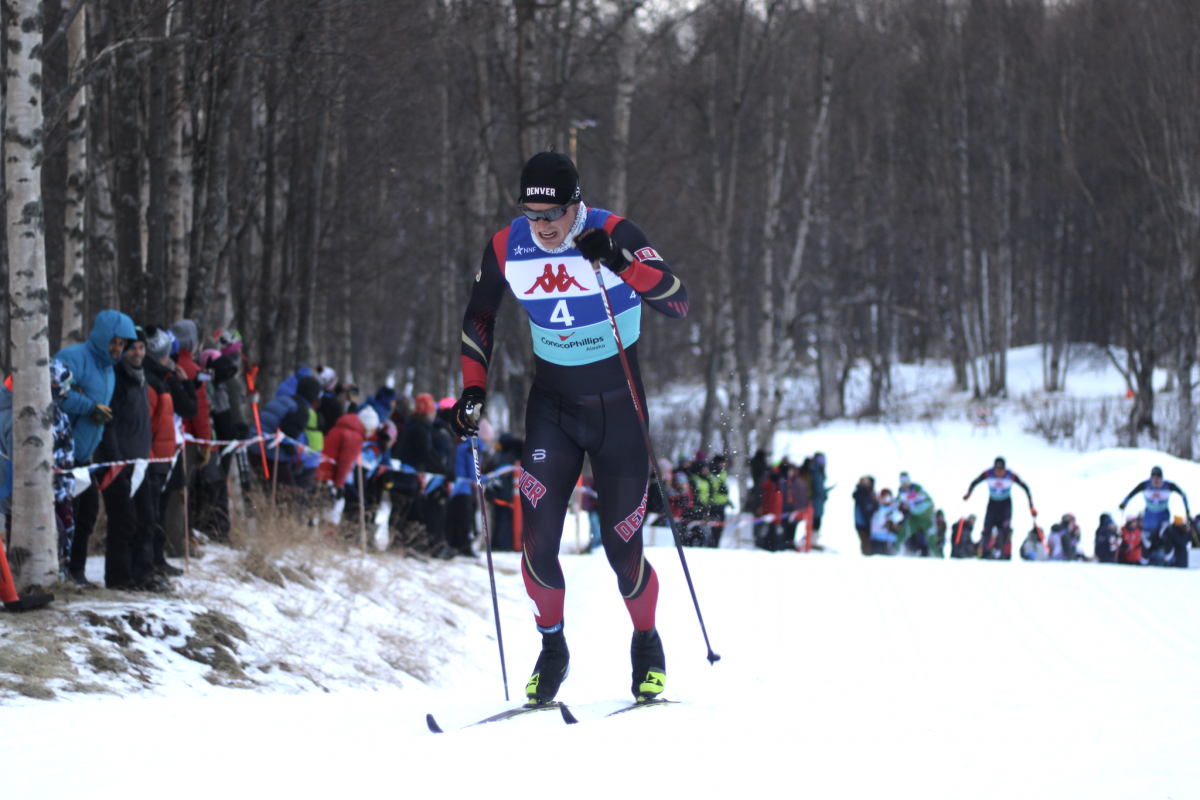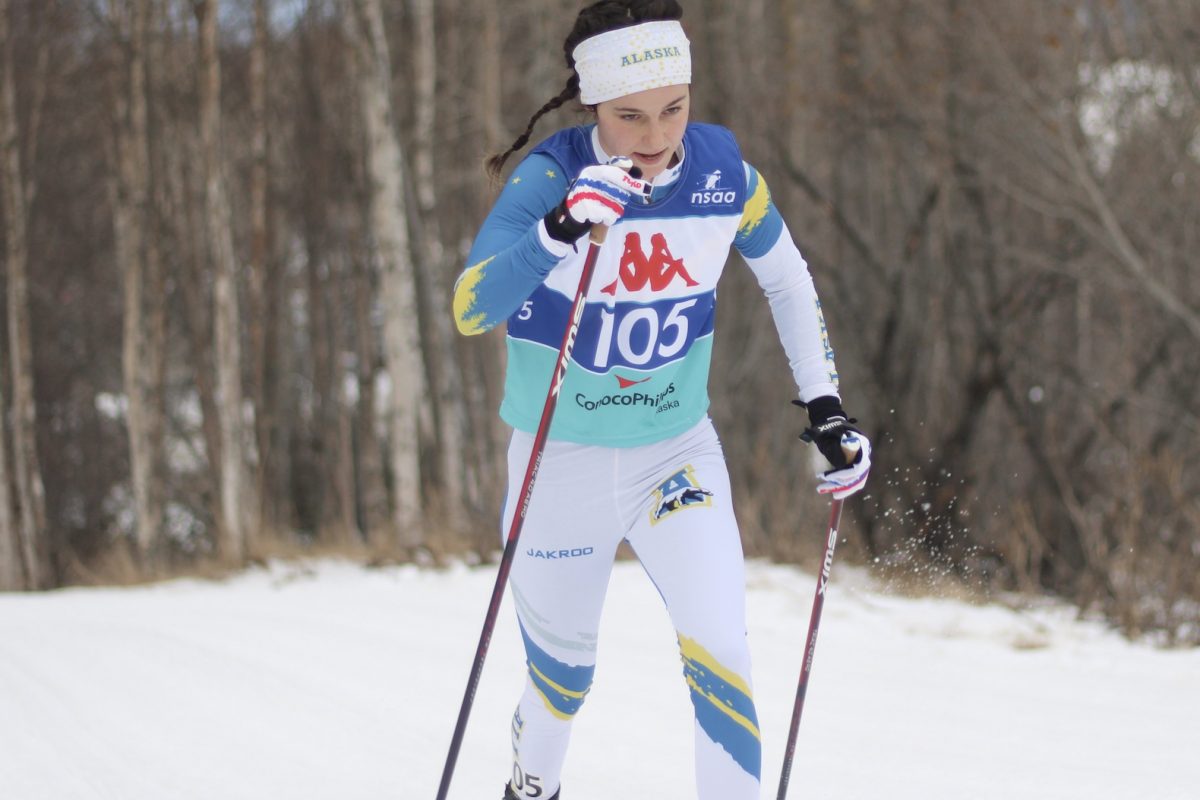BUFF SKIERS SET TO MAKE RUN at NCAA TITLE – University of Colorado NCAA Preview
BETHEL, Maine — The Sunday River Ski Area in this quiet west central Maine town has twice before hosted the NCAA Championships — in 1976 and 1999 — and the University of Colorado ski team is looking to accomplish what it did both previous trips here, and that’s return to Boulder with the winning trophy in hand.
The Buffaloes arrived here last Saturday to get in three full days of training ahead of the 56th NCAA Ski Championships, which begin here Wednesday and run through Saturday.
Colorado is looking for the school’s 18th national title in the sport of skiing, last winning in 2006; it shared the title with Dartmouth in 1976, the only time two schools have tied for the title, and bested rival Denver by 14 points in 1999 in the two previous championships held here and in Rumford, where the Nordic events take place. Seven of CU’s 17 titles in skiing have been won in the east.
This winter in the west, Colorado on the surface appeared to be the dominant team with wins in three of the five invitationals, but Alaska-Anchorage and New Mexico grabbed the other two wins proving to have very deep squads. Non-winners Denver and Utah both qualified full 12-skier teams for the NCAA Championships, despite finishing fourth and sixth, respectively in the RMISA Championships/NCAA West Regional. Alaska also qualified a full-team, yet an on-fire UNM after claiming just its second RMISA title ever, only qualified 10, as did Nevada.
CU qualified 11 of the maximum 12 skiers for this year’s championships; the Buffs became the first school win a title shorthanded in doing so in 2006, with Denver matching the feat last year. Twenty-two schools overall are participating in Maine this week, just four with full teams as Dartmouth was the only school from the east to send a dozen on to the national meet. The scoring format, tweaked for the first time since 1997, gives teams one skier short a legitimate shot to win the title, and those two short an outside chance.
All six schools have strengths in at least one if not two specific disciplines, so any of the six could emerge in the national meet. UAA opened the season with its first-ever invitational win, claiming its own Seawolf Invitational (by 16 points over Utah), a meet that replaced the Western State invite when the school dropped skiing as a sport last summer. Colorado won the next three meets, by 12½, 23½ and 48 points, with UNM closing the western season with a 26-point win over the Buffs as the Lobos led from wire-to-wire. It was the most balanced season in RMISA history since the sport went coed in 1983.
“You love the competition, it only makes you stronger,” head coach Richard Rokos said. “You could not take a single race off in any discipline this winter because if you did, you found yourself way down in the standings. But that’s good, the top dogs don’t get complacent knowing there is a razor thin margin for error. And that should help all of us at nationals.
Rokos is pleased with the mental and physical state of his team less than 48 hours before the championships commence.
“It’s all positive. Everybody is healthy, focused, pumped up and ready to roll,” he said. “We’ve had a very good year overall, and we’re encouraged about our chances despite qualifying one less skier than the maximum. We’ve proved mathematically that you can win with 11. We did it at Steamboat (in 2006) and won by a near-record margin. Skiing with 11 instead of 12 there is still more on the line and less room for error. Fortunately with everybody healthy, it comes down to skiing smart and eliminating mistakes.”
Colorado is always single-minded when it comes to the goal at NCAA’s.
“The goal is always the same and it will never change,” Rokos said. “And that’s to win it, but also to have a positive experience. Sportsmanship, achieve it under honorable conditions. I would hate to win it because we didn’t ski our best, but it was because the others didn’t ski their best. But the bottom line is like we say every year, our goal never changes, it’s always the same, we’re going after the trophy. We don’t ever go into this thinking second place would be a great finish. The goal is to win, everybody knows it, and everyone will pursue it. We are stronger than we have been in a long time in men’s alpine, Nordic is solid and predictable. And as usual in alpine, it could come down to what team keeps falls and crashes to a minimum.
Rokos’ teams have won five national championships on his watch at CU, tied for the second most in CU history with current cross country coach Mark Wetmore, and trailing the seven won in skiing under Bill Marolt. Colorado has won 23 overall in its athletic history.
CU’s 11-skier roster breaks down by eligibility into two seniors, four juniors and five sophomores, with six of the 11 having skied previously in at least one NCAA championship. Seniors Maria Grevsgaard and Lisa Perricone lead the way, as this will be their fourth NCAA experience.
Grevsgaard is looking to close out a storybook career. CU’s all-time leader in individual wins with 24, she’s tied for the most podium finishes (top threes) with former teammate Lucie Zikova (34). Grevsgaard is the defending champion in both the Nordic classical and freestyle races, and if she can repeat her feat, she’ll tie a small handful of athletes at CU that have won four NCAA titles in any sport. She is the No. 1 seed across the board in Nordic. Joining her on the women’s cross country team for the Buffs is sophomore Alexa Turzian, the No. 6 seed in the west who transferred to CU from Middlebury after last season. This is the unit that is one short, qualifying just two of the maximum three skiers per discipline. With a weighted scoring format (50 team points for first, 47 for second, etc., through the top eight), the higher Grevsgaard and Turzian can finish, the more they can offset not having a third teammate.
One other Buffalo is a No. 1 seed, junior Matt Gelso, the leader of CU’s strongest discipline, the men’s Nordic squad. The unit racked up five wins, 24 top five and 33 top 10 performances this winter, including a pair of back-to-back 1-2-3 sweeps in Alaska, the first such sweeps by CU cross country skiers in 47 years. Sophomores Vegard Kjoelhamar (No. 2 seed) and Jesper Ostensen (No. 3 seed) round out likely the strongest Nordic program in the nation; three other Buffaloes also qualified but only three could advance to NCAA’s.
The Buffs did qualify a full alpine team for just the second time in the last six seasons, led by a pair of No. 3 overall seeds. Sophomore Carolina Nordh has skied well in both the giant slalom (No. 2 seed) and the slalom (No. 6), with junior Gabriel Rivas doing the same (No. 2 in the slalom and No. 8 in the GS).
The women’s team skied a little more consistent than the men’s this winter. Sophomore Katie Hartman is the No. 5 seed and Perricone a 10-seed, both a bit stronger in the slalom. JuniorsStefan Hughes (No. 10 seed, seventh in the slalom) and Drew Roberts (No. 12 overall, 10th in the slalom) round out the men’s unit. Hughes grew up in the east and is most familiar with the eastern snow, which often this time of year is more ice-like.
Individually, Colorado skiers won 14 of the 44 races in the western regular season, with New Mexico catching the Buffs at the end with its fine showing in the RMISA Championships. Colorado won three of the five western meets, sandwiched by Alaska-Anchorage’s first-ever win in its own Seawolf Invitational and the Lobos’ performance in the regional.
It was a different story in the east; Dartmouth, won all six carnivals as the Big Green has distanced themselves from Vermont and Middlebury as the dominant eastern program. Dartmouth has won 17 of the last 18 eastern competitions and is the only school from the east to win a national title since 1994 when it claimed the ’07 crown two years ago. Western schools have won 13 of the last 14 titles.
“We don’t know much about the east, other than Dartmouth won all the meets and skied well all season,” Rokos said. “We never get to race against them until the NCAA’s, so it’s always a wait-and-see deal. But it seems like they have emerged as the dominant force from the East and the only school that keeps qualifying a full team. The central schools are always a great unknown; they can displace some good racers and have an effect on the final standings even though they can’t win it, but that’s an element that can make things unpredictable. Northern Michigan always has a strong team and they can mess things up for everybody.”
The giant slalom races open the NCAA Championships on Wednesday, March 11, with the women’s first run at 7 a.m. MST, with the second run to follow immediately; the men’s first run is set for 10:30 a.m. MST, followed by its second run. Nordic competition takes center stage on Thursday, March 12, with the classical cross country races, the men’s 10-kilometer up first at 8 a.m. MST, with the women’s 5K to follow at 10 a.m. MST. The slalom races complete the alpine events on Friday, March 13, with the men’s first run at 7:30 a.m. MST followed by the women’s first run at 8:15; second runs follow at 10:15 (men) and 11:00 (women). The freestyle cross country races will finish off the NCAA meet on Saturday, March 14: the women’s 15-kilometer is set for an 8 a.m. MST start, with the men’s 20K to follow at 10:00 a.m. Flower ceremonies follow each event, and the awards presentation is set for Noon MST on Saturday.
Read More…. (use the page navigation below)



